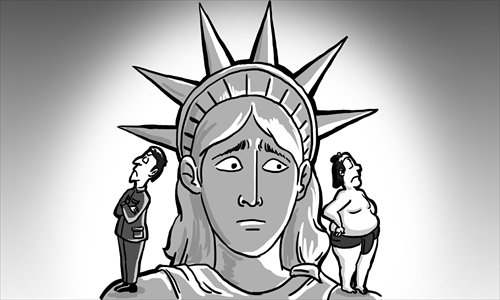US diplomacy lesson in equal engagement with China, Japan

Before kicking off his Asian trip, the US media cast Defense Secretary Leon Panetta as a mediator in the territorial dispute between China and Japan. However, Panetta's intention is not to mediate the dispute in a literal sense, that is, he will not sit down with the contending parties and propose solutions in detail. Rather he calls upon them to impose upon themselves the restraint which would allow either mediation or direct negotiation.
What Panetta casts himself as is a benign neighbor. It is difficult to accept a version of events which depicts Panetta as encouraging the Japanese to the confrontational course some segments of Japanese opinion, not those with which the US has very close ties, have chosen.
He is a highly political secretary of defense - he was White House chief of staff to Clinton and a prominent Democratic congressman - and in the last seven weeks of the presidential campaign, he knows that the last thing the White House needs and wants is a major crisis in East Asia to add to the troubles in the Muslim world.
The US for the foreseeable future surely views Japan as an indispensable ally in Asia and no doubt a factor to balance some of China's power. But the US after 1945 insisted on the demilitarization of Japanese society - until the Cold War required a more benign view of the Japanese military.
However the US elite, aware of Asian history, is also wary of the potentially uncontrollable forces of Japanese nationalism. In other words, the US would wish to be in position to be certain that it would not be dragged or pushed into conflict with China by its Japanese ally. I would imagine that the US diplomats are quite alarmed at the nationalism of some Japanese leaders - with their potential for being as hostile in the long run to the US as to China.
There are many discussions about Japan's self-positioning in Asia, and its relationship with the US. Japan supplies bases to the US, but deep in Japanese consciousness resides the defeat of World War II and the use of nuclear weapons on Japan as it negotiated the end of the war.
It is difficult to see why the Japanese leadership would fashion a permanent alignment with the US when the future of US power in the world is a matter of some debate with elites quite aware, despite all denials and triumphalist statements, of the need for a fundamental reconsideration of the extent and intensity of our military political engagements.
Given the inner divisions of Japanese politics, we have to expect pendulum swings in Japanese Asian policy for a long time before a new equilibrium is reached. Much would also depend upon Chinese choices in dealing with its neighbor.
There are speculations among Chinese analysts that it is the US which stirred up the escalation of the dispute between China and Japan. I find it very difficult to credit this argument, in view of the imperatives of the election campaign and the relative sobriety of the Obama foreign policy.
It is true that for a large foreign policy, intelligence and military apparatus such as ours, there is always the possibility of different segments undertaking operations not coordinated with the center or highest levels.
The hyper-nationalists in Japan do not require US encouragement to return to their illusions of omnipotence. It is hard to imagine much serious anxiety in the US about being expelled from Asia in view of the long established economic and political interdependency which cannot be airbrushed out of the picture. That does not exclude particular points of conflict.
The conspiracy theorists also are ignorant of how complicated, cumbersome, US processes of foreign policy decision are, how slow the nature of interest formation, how permanently unstable our stability while we maintain what on the face of it is a steady course. If your conspiracy theorists had ever sat in at an inter agency meeting in Washington, they would wonder that any cable at all is sent from State, any Navy ship ever leaves the harbor, and any decision taken instead of being endlessly argued about in governmental councils.
I am not sure what Panetta's agenda is but it certainly includes an effort to urge China and Japan to stabilize the situation. The US is exploring all ways of exerting influence by speaking to the antagonists and to the new Chinese leadership. I do think he will be exploring possibilities by opening contacts.
The US is well aware of the entire situation in the Eastern Pacific with any number of potential points of conflict. The visit is also part of the perfectly sensible notion that the more contact the better, as opposed to another and exceedingly self-destructive tendency in modern US diplomacy which regards contact as a concession to the other side.
In regard to mediating between China and Japan, I am not sure that the US can influence China. However, imagine that the Chinese leadership is interested in a stable international environment in which to pursue the new phases of Chinese domestic development.
The article was compiled by Global Times reporter Chen Chenchen, based on an interview with Norman Birnbaum, an emeritus professor at the Georgetown University Law Center. chenchenchen@globaltimes.com.cn